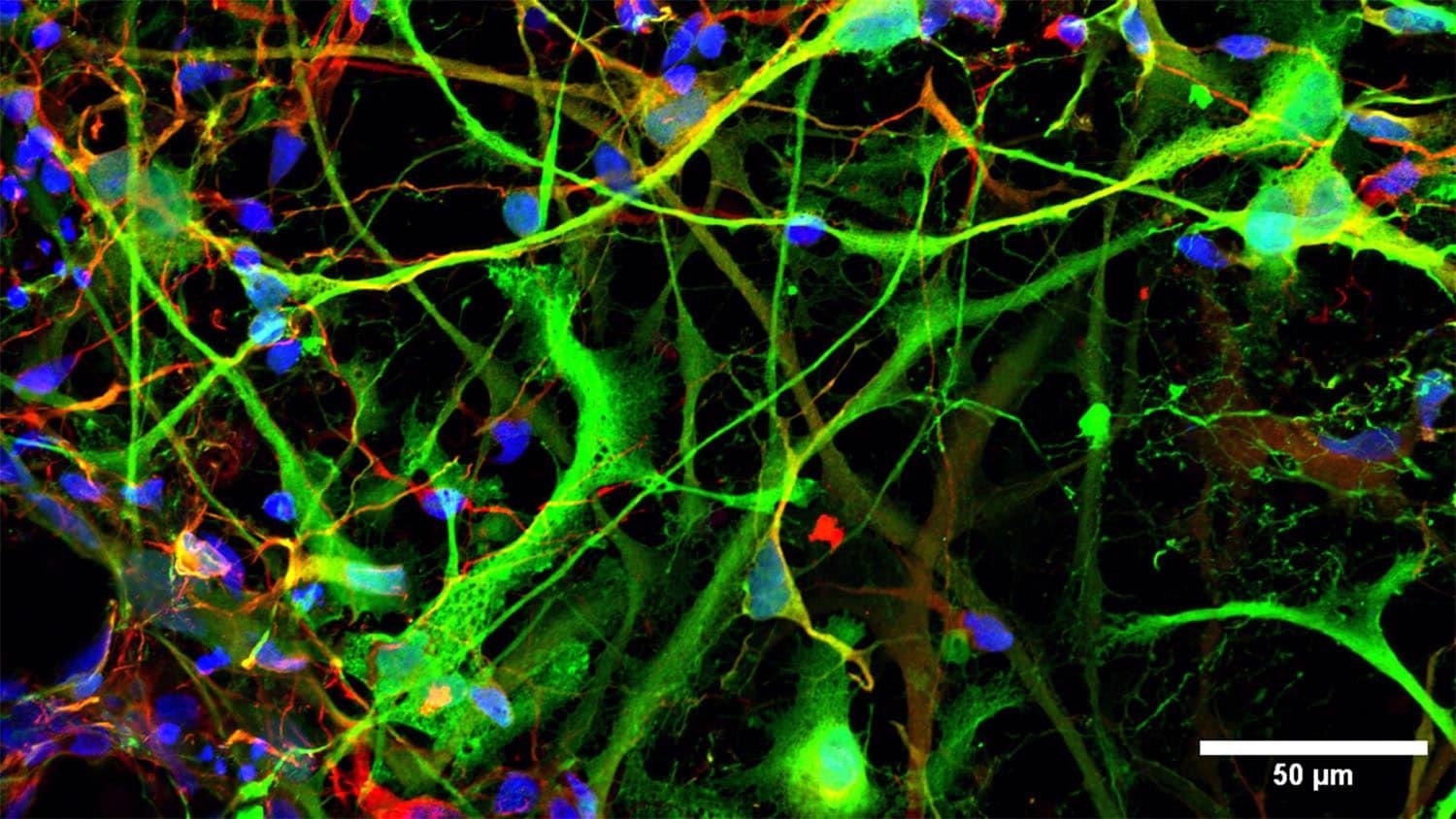North Carolina State University researchers have shown that neuron-like cells produced from human stem cells may be used to examine alterations in the neurological system linked to addiction. The findings give information on the effect of dopamine on gene activity in neurons and provide a framework for future study in this area.
 Stem cell-derived medium spiny-like neuron morphology highlighted by the green fluorescent protein GFP and neuron marker MAP2 in red. Image Credit: Ryan Tam
Stem cell-derived medium spiny-like neuron morphology highlighted by the green fluorescent protein GFP and neuron marker MAP2 in red. Image Credit: Ryan Tam
It is extremely difficult to study how addiction changes the brain at a cellular level in humans—nobody wants to experiment on somebody’s brain. What we’ve done here demonstrates that we can gain a deep understanding of those cellular responses using neuron-like cells derived from human stem cells.”
Albert Keung, Study Corresponding Author and Assistant Professor, Chemical and Biomolecular Engineering, North Carolina State University
The question is how the nervous system’s cells react to drugs linked to substance abuse and addiction. Dopamine is a neurotransmitter produced by the human body. It is linked to emotions like pleasure, which are linked to motivation and reward.
When dopamine-stimulated neuronal cells in the brain’s “reward pathway” are exposed to it, a specific set of genes is activated, resulting in the reward experiences that make individuals feel good. Many medications, including alcohol and tobacco, as well as opioids and cocaine, induce the body to create more dopamine.
In experiments using rodents, researchers have shown that when relevant neuronal cells are exposed to high levels of dopamine for an extended period of time, they become desensitized – meaning the cells’ gene activation is less pronounced in response to the dopamine. This is called gene desensitization. However, until now, it hasn’t been possible to do an experimental study using human neuronal cells.”
Albert Keung, Study Corresponding Author and Assistant Professor, Chemical and Biomolecular Engineering, North Carolina State University
“Our work here is the first experimental study to demonstrate gene desensitization in human neuronal cells, specifically in response to dopamine,” says Ryan Tam, study first author and a PhD student at NC State. “We don’t have to infer that it is happening in human cells; we can show that it is happening in human cells.”
Tam and Keung exposed neuron-like cells produced from human stem cells to different doses of dopamine for different periods in their research. When cells were subjected to elevated doses of dopamine for a prolonged period, the key “reward” genes became much less responsive, according to the researchers.
Tam says, “This is an interesting finding, but it’s also a proof of concept study. We’ve demonstrated that gene desensitization to dopamine occurs in human cells, but there is still a lot we don’t know about the nature of the relationship between dopamine and gene desensitization.”
Tam details, “For example, could higher levels of dopamine cause desensitization at shorter time scales? Alternatively, could lower levels of dopamine cause desensitization at longer time scales? Are there threshold levels, or is there some sort of linear relationship? How might the presence of other neurotransmitters or bioactive chemicals affect these responses?”
Those are good questions, which future research could address. And we’ve demonstrated that these neuron-like cells derived from human stem cells are a good model for conducting that research.”
Albert Keung, Study Corresponding Author and Assistant Professor, Chemical and Biomolecular Engineering, North Carolina State University
Source:
Journal reference:
Tam, R. W., & Keung, A. J. (2022) Human Pluripotent Stem Cell-Derived Medium Spiny Neuron-like Cells Exhibit Gene Desensitization. Cells. doi.org/10.3390/cells11091411.